The impact of the Covid-19 pandemic has caused terrorism-related arrests to drop to their lowest level in more than a decade, with Counter Terrorism Policing warning that it is creating an environment in which extremists will find it easier to target and potentially radicalise vulnerable people – particularly children.
The Home Office’s quarterly release of statistics relating to the police’s use of powers under the Terrorism Act 2000 revealed there were a total of 166 arrests for terrorism-related activity in the year ending 31 March 2021, 98 (37%) fewer than in the previous 12-month period and the lowest annual total since 2011.
The reduction in the number of arrests is largely a result of an overall reduction in crime since the beginning of the national lockdown in March last year, because CTP frequently use non-terrorism legislation to make arrests and disrupt terrorist activity, and the lockdown period has presented fewer opportunities for officers to do that.
But while fewer arrests have taken place, experts at CTP are concerned that online activity has continued at pre-pandemic levels, with terrorist groomers exploiting the fact that vulnerable people – including children – have spent more time online, isolated and without regular access supporting factors such as schools, social workers and mental health services.
There is particular concern about young people, with the new statistics showing that while arrests across every other age group have declined – 21 children under the age of 18 were arrested, making them the only demographic to show an increase.
This represents 13% of those arrested in the year to 31 March 2021, up from 5% the previous year – and is the highest number of children arrested in relation to terrorist activity since 2017/18.
The Senior National Coordinator for Counter Terrorism Policing, Deputy Assistant Commissioner Dean Haydon, said: “Unfortunately we are seeing increasing numbers of young people arrested in relation to terrorism offences.
“We have previously warned that the pandemic was creating a ‘perfect storm’ of factors which is making young people more vulnerable to extremist influence, and we are perhaps seeing that come to fruition.
“Covid-19 has driven huge numbers of people to spend a lot more time online, and we have seen an increase in the volume of online extremism – much of which sits below a criminal threshold, but which creates a permissive environment which makes it easier for extremists to pedal their brand of hatred.
“The pandemic has also exacerbated the challenging circumstances and grievances within society that terrorists latch onto to promote their brand of extremism, it has stoked distrust in authority and most importantly is has made us all more isolated, making it more difficult for young and vulnerable people to access to the support services which they rely on to protect them from extremist influence.
“We cannot hope to arrest our way out of this problem – the only way we can hope to reverse this worrying prevalence of children in our arrest stats is to stop them from being radicalised in the first place.”
Last year, CTP launched a new dedicated website called ACT Early, designed to offer advice and support for parents and family members who think their loved one might be following a dangerous path towards extremism.
Research tells us that parents, family members and friends are the first to see the changes in behaviour which might indicate that a loved one is being radicalised, but analysis from 2019/2020 data shows just 2% of people we help through Prevent come to the programme because of concerns raised by those who know them best.
“It doesn’t have to be this way,” said DAC Haydon.
“We can help children move away from this dangerous path, but the earlier we catch it, the better chance we have of helping them in the long term.
“Asking for help is a difficult and emotional step, but we must see it for what it is – action which won’t ruin their lives but may well save them.”
If you are worried that someone you know is being radicalised, visit www.actearly.uk
For help and advice visit www.actearly.uk, or call the national Police Prevent Advice Line on 0800 011 3764, in confidence, and our specially trained Prevent officers will listen carefully to your concerns.

